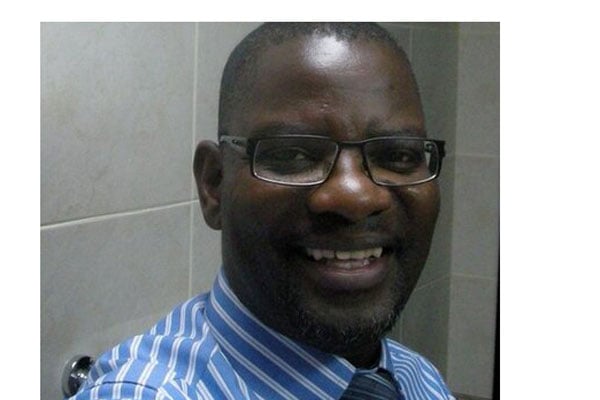
Author: Musaazi Namiti. PHOTO/FILE
|Commentary
Prime
The story of my Covid-19 vaccination
What you need to know:
- If you worry about the pain from the needle, relax. By the time you start to feel it, everything will be over.
Hesitant and undecided about Covid-19 vaccination? Read on. By the time you finish reading my story, you will know what to expect, the side affects you have to deal with and how your Ministry of Health can help or disappoint you.
I will begin with positives. First, the vaccines are readily available at the designated vaccination centres. Second, the waiting time for my jab was surprisingly short. Third, and most important, when you get fully vaccinated, you have slim chances of losing your life to Covid-19.
It has taken me months to go for vaccination because I was waiting for the Johnson and Johnson (J&J) vaccine, but I realised I was going to wait forever and miss trips (which has already happened) if I continued waiting for the one-jab vaccine. Although Uganda has received the J&J vaccine, it is not for all Ugandans!
On November 1, I went to the Mayor’s Gardens, Entebbe, for my first jab. The vaccination centre said it was administering Pfizer, which was my second choice after the J&J vaccine. Two people I know have used the vaccine, and they say they are happy with it.
When I arrived, people were milling around, but there were no queues. I could see from a distance that I was walking into a disorganised place.
However, if you were born and bred in Uganda, you know that few things in our country are done in an organised manner. Organisers being disorganised is how things work, for the most part.
The first thing I did when I reached the vaccination centre was to fill a form. It was in English only, and that surprised me because I could see many people around who would struggle to spell “English”, yet they were being asked to answer questions such as: Have you ever had any allergic reaction to a vaccine?
A young man was translating the questions and other details on the form in Luganda, but he was comical and not paying attention to detail. People began to pay attention — and laughed heartily — when he mentioned sex as one of the things vaccinated people had to abstain from for at least three days.
The form makes it very clear that if anything goes horribly wrong after the jab, nobody, except you, should bear responsibility. Vaccinated people are advised to wait around for 30 minutes in case they get serious side effects. But I did not see anything that could enable the vaccinators to deal with emergencies.
If you worry about the pain from the needle, relax. By the time you start to feel it, everything will be over. The pain you have to deal with is at the injection site on the upper part of your arm. It can be serious. Headache? It was mild; in fact, so mild that it was almost negligible. Swellings? No. Rash? No. Swollen tongue? No. Diabetics and high blood pressure patients are vaccinatable.
But I am still confused about the actual date of my second and final jab. On the vaccination card, they wrote November 28. But the ministry told me I have to wait 30 days. The same ministry told me, on the day I was vaccinated in Entebbe, that only vaccination centres in and around Kampala had Pfizer, yet on my vaccination card, they wrote Pfizer. Did I get Pfizer? I am not certain.
I contacted the ministry’s spokesman via WhatsApp, seeking clarification. He could not have been less helpful. He sent me vague answers.
And, lastly, the ministry’s toll-free line works haphazardly.
Mr Namiti is a journalist and former Al Jazeera digital editor in charge of the Africa desk
Twitter: @kazbuk




